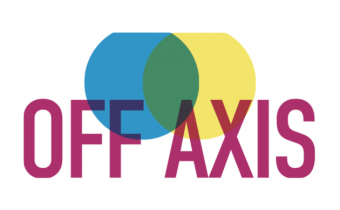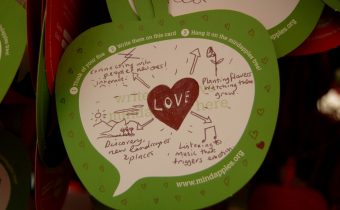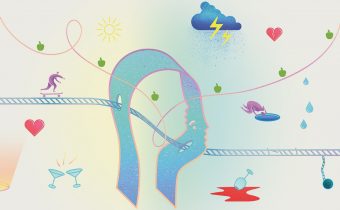Get your aural 5-a-day!
For one weekend each year the Digbeth arches in Birmingham vibrate with strange, wonderful sounds as the Custard Factory becomes the focal point for one of the UK’s most distinctive and respected music festivals…Supersonic Festival. A dynamic and constantly challenging experimental multi disciplinary arts festival, Supersonic identifies the otherwise indescribable connections between contemporary music, art, performance and film. 2012 sees the festival in its tenth year, and as part of its development it’s teamed up with the hub, PRS for Music Foundation and Sound and Music to put together an afternoon of panel debates and networking on Friday 19 October at Birmingham School of Art.
So it was that I first of all found myself chairing a session as part of our work on New Music Plus…. Jo Beggs, Director of Development at the Manchester Partnership, Will Dutta from Chimera Productions, Lisa Meyer from Capsule/Supersonic and Andrew Ellis from Samizdat made the case for cross art form collaboration. As the people behind some of the most exciting music-led inter-disciplinary work in the country, they talked knowledgeably and honestly about why this work is important to them, and about how they make it work – artistically and financially. And having overcome an initial post-lunch slump, the audience were full of really interesting questions and comments. Great Friday afternoon stuff!
Next up, a panel put together by Sound and Music, featuring artist Lucas Abela (aka Justice Yeldman), The Wire’s Frances Morgan, Irene Revell from Electra and composer and academic Simon Hall. Called The Art of Listening I (somewhat ironically) found myself drifting in and out of listening to the panel presentations, as I thought about the ideas being discussed.
I was, however, really interested in what Simon Hall, Birmingham Conservatoire’s Head of Music Technology and a composer, had to say about listening though. His line of argument was that we’re as a country getting lazier in our listening, mainly as a result of the near constant feed of music and sound that many of us are exposed to everyday. He talked about entertainment and the need the mainstream music industry has to ‘feed the masses’. Picking up on a theme that had resonated across all the panel presentations, he laid some of the blame at technology’s door, implicating it in the industry’s tendency to pander to the masses, and describing “an aural suicide pact between those who produce (music) and those who consume (it)”. He made a really compelling link between the production and consumption of music and changes we’ve seen with food – from home produced meals to mass-produced convenience fodder. Sticking with the analogy, and employing a lovely turn of phrase – that really made me sit up and listen – he talked of our “aural obesity” and of us becoming “a nation of aural couch potatoes”.
To combat this “aural obesity” in his students, Simon prescribes an aural “5-a-day”, asking them to actively listen to five different instruments a day. And that’s actively listen, as in stop doing anything else, and just focus on the sounds created by that one instrument. Not listen to it in the background while ‘doing’ something else.
I’ve tried it today, and it’s a lovely thing to do. I did it by picking a random selection of tunes on my i-Tunes playlist, and it really improved my mood and my concentration and was a great excuse to really properly listen to some music at lunchtime instead of grazing (musically and lunch-wise) at my desk. And it made me think about the other 5-a-day idea I came across recently at the INTERROGATE! festival we programmed for Dartington – MindApples’ recommendation that we each compile a list of 5 things we can do each day that improve our mental health. Having tried Simon’s prescription, there’s absolutely no doubt that this active listening exercise has gone straight to the top of my wellbeing 5-a-day. Go on, give it a try!
For further reading see Julia Payne’s article for Guardian Culture Professionals here



